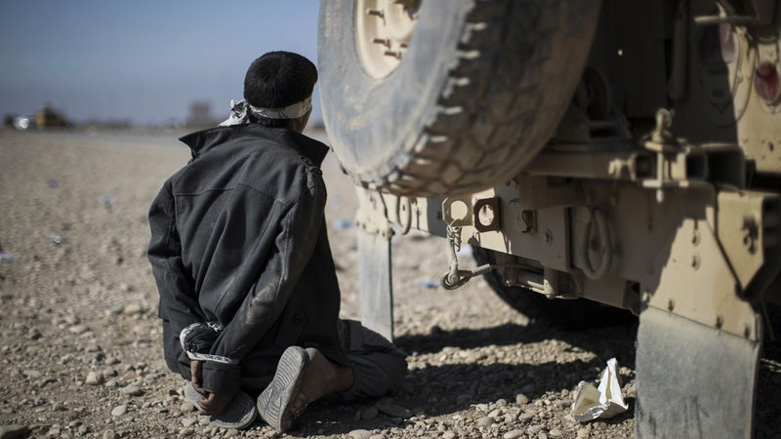Iraqi officials threatening, arresting lawyers: Rights group

ERBIL (Kurdistan 24) – Officers in the Iraqi security forces are threatening, and arresting attorneys thought to be providing legal assistance to individuals suspected of involvement with the Islamic State (IS), and even to others perceived to be their family members, Human Rights Watch (HRW) said on Wednesday.
Lawyers told the international human rights watchdog that they, “fearing for their lives,” have been intimidated into halting legal representation.
“The Iraqi government is attacking lawyers for doing their job and is effectively preventing people who need legal services from getting them,” Lama Fakih, deputy Middle East director at HRW, said.
“In addition to being illegal, these attacks have a corrosive effect on the rule of law by sending a message that only some Iraqis have the right to legal representation.”
In the past two months, HRW interviewed 17 lawyers working in and around Mosul for international or local organizations that provide representation or other services to members of the public, including assisting families who lived under IS control to get the civil documentation they need to live in government-controlled areas, as well as for welfare benefits.
According to the lawyers, officers from the National Security Service or Ministry of Interior routinely threaten or otherwise harass anyone attempting to assist members of what they refer to as “IS families,” often based solely on their tribal or family name.
“One said an Interior Ministry intelligence officer detained him for his legal activities for two hours, while another said that intelligence officers detained two other legal aid workers for two months, finally releasing them without charge,” the report read.
Security officers told lawyers that “representing these families would lead to further personal threats, and that even with their legal assistance, these families would be refused civil documentation.”
Iraqis without proper documentation face the constant risk of arrest or detention and are prevented from basic travel, employment, and public benefits.
“Children denied birth certificates may be considered stateless and may not be allowed to enroll in school,” HRW said.
“Women unable to obtain death certificates for their spouses are unable to inherit property or remarry. Those with missing civil documentation need to go through a sometimes-onerous administrative process and benefit greatly from the help of a lawyer in passing through the different hurdles to obtain their documents.”
In late July, HRW claimed that Iraqi judges frequently disregard allegations of torture by security forces and convict suspects based on confessions that are credibly claimed to be a result of such abuse.
Concern around the use of torture by Iraqi security forces has increased considerably since the government’s mass arrests of thousands of IS suspects. Although Iraq is a party to the United Nations Convention against Torture, it has no laws or guidelines directing judicial action when defendants claim torture or other mistreatment has occurred.
On Wednesday, an official from a Kurdish political party based in Kirkuk charged that Iraqi federal police and militants from Iran-backed Hashd al-Shaabi militias recently arrested and tortured a group of 10 Kurdish Peshmerga and four Arab civilians in the province.
“Under abuse,” Kamal said, the detainees “have been forced to admit to crimes they have not committed.”
“When they were taken to Kirkuk’s Criminal Court, they undressed and showed the investigation judge their scars of the brutal treatment they had received in jail,” he continued, adding that they had not been released.
Since Iraq’s present government came into power, human rights groups and UN agencies have regularly and routinely documented such practices by Iraqi security forces, including forced confessions under torture.
Editing by Karzan Sulaivany
